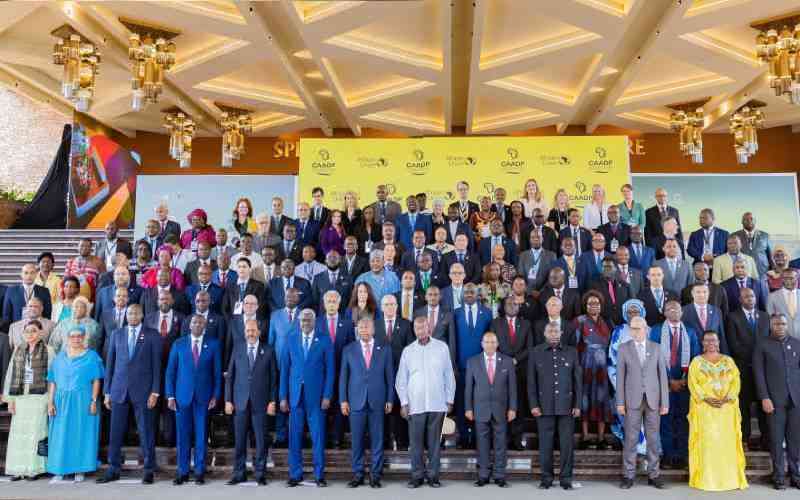At the African Union Summit held in Malabo, Equatorial Guinea, in June 2014, heads of state and government adopted a set of concrete agricultural goals to be attained by 2025.
Known as the Malabo Declaration, it is a set of goals aimed at achieving the agricultural vision for the African continent.
The summit affirmed that agriculture should remain high on the development agenda of the continent and is critical for economic growth and poverty reduction.
Among the commitments were: recommitment to the principles and values of the Comprehensive Africa Agriculture Development Programme (CAADP); enhancing investment finance in agriculture; ending hunger in Africa by 2025; halving poverty by 2025 through inclusive agricultural growth and transformation; and boosting intra-African trade in agricultural commodities and services.
Other commitments included enhancing the resilience of livelihoods and production systems to climate variability and other related risks; promoting mutual accountability for actions and results; and strengthening the African Union Commission to support delivery on these commitments.
On the commitment to enhance investment finance, both public and private, for agriculture, the countries resolved to uphold their earlier commitment to allocate at least 10 per cent of public expenditure to agriculture
Second, they declared the creation of policy and institutional conditions and support systems to facilitate private investment in agriculture, agri-business, and agro-industries, with priority given to local investors.
The third commitment was to fast-track the operationalisation of the African Investment Bank, as provided for in the Constitutive Act of the African Union, with a view to mobilising and disbursing investment finance for agriculture-related projects.
However, according to the Fourth Comprehensive Africa Agriculture Development Programme (CAADP) Biennial Review Report released at the three-day Ministerial Session of the CAADP Extra-Ordinary Summit held in Kampala, Uganda, between January 9 and 11, 2025, meeting the commitments this year may not be possible.
“While 12 African Union member states have consistently improved their performance over four CAADP Biennial Review (BR) cycles, as of 2023, the BR report showed none of the states is on track to meet the Malabo Declaration targets by 2025,” said the report, read by Josefa Sacko, Commissioner for Agriculture, Rural Development, Blue Economy and Sustainable Environment at the African Union Commission (AUC).
The summit also adopted the Kampala Declaration to succeed the Malabo Declaration, whose implementation period ends this year, and also adopted a 10-year CAADP Strategy (2026-2035) and action plan to advance agricultural transformation and food systems in Africa.
The report cites the effects of the Covid-19 pandemic, which started in early 2020; the Russian-Ukraine conflict; supply chain disruptions; multiple conflicts on the continent; and the impact of climate change as having an effect on the declaration commitments.
“The combined effect of these shocks is reversing decades of progress that the continent had made in economic growth, social progress, and food security and nutrition, as recorded and advocated through the CAADP process. This has taken a toll not only on the health of our population but also on our economies, an the agricultural sector,” it said.
According to the report, the unprecedented Covid-19 pandemic affected food systems in many ways, disrupting input and output markets, as well as the production of various commodities, mostly undertaken by smallholder farmers.
Stay informed. Subscribe to our newsletter
“The effects of the pandemic and other shocks have led to millions of African citizens facing hunger, thereby undermining the progress made towards the achievement of the commitments made under the Malabo Declaration, Agenda 2063, and the Sustainable Development Goals,” said the report.
While the effects of these shocks have had global impacts, the AUC says it is in Africa that the proportion of the population affected by hunger has increased the most.

























